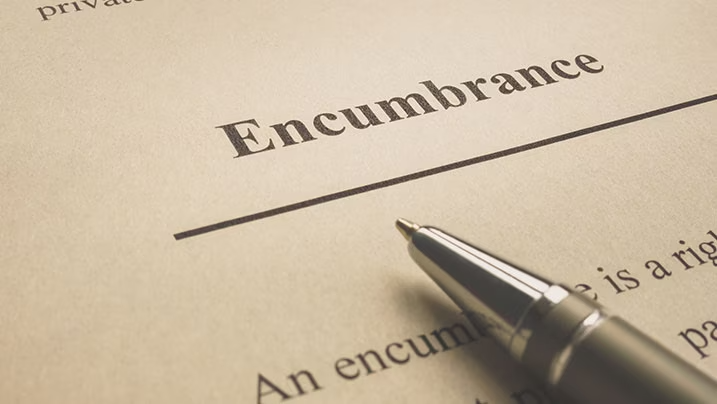Table of Content
▲
An encumbrance refers to a assertion imposed on a property by a party other than the owner, potentially restricting the unrestricted use or transfer of the property until the encumbrance is removed. Various types of encumbrances include mortgages, property tax liens, leases, encroachments, and easements.
Types of encumbrance
Mortgage encumbrance
This is a contract between a borrower (mostly homebuyer) and money lender. Under this, the property will be set as collateral against the money borrowed. In case a borrower defaults on the loan repayment, the collateral may be seized by evicting people staying there.
Liens
This is a type of security interest in which the property’s title is affected. Under this, the creditor or the person who lends loan is allowed to seize the property as collateral when the borrowed money is not paid. Once seized, the lender can sell the property to get his money back.
Also Read: How to save tax on rental income?
Easement
Under this, one party is given the right to develop or restrict the use of a part of land that belongs to someone else. For instance, a utility provider, such as MGL piped gas line may be allowed to use their line through a property owned by someone else.
Encroachment
Under this, a person, who doesn’t own land, takes control of the property, and uses it as his own. This is done by constructing a boundary wall around the property. The encroached land cannot be freely used. Note, the person who has illegal construction on a land doesn’t own it. In this type of encumbrance, there is an effect on both parties. The land or property encroached cannot be used freely by the landlord or the person who has encroached it as he doesn’t own the land or property.
Also Read: What is a leave and licence agreement?



_1772441702.webp)


_1771410929.webp)


Ans 1. The various types of encumbrances include encroachment, lien, mortgage, etc.
Ans 2. An encumbrance certificate is a legal document that confirms the property’s free title. The document also mentions whether it is mortgaged or has any pending dues to be paid.
Ans 3. You can download the encumbrance certificate from the IGRS website of a state.
Ans 4. Yes, an encumbrance certificate is necessary for any property transaction to happen.